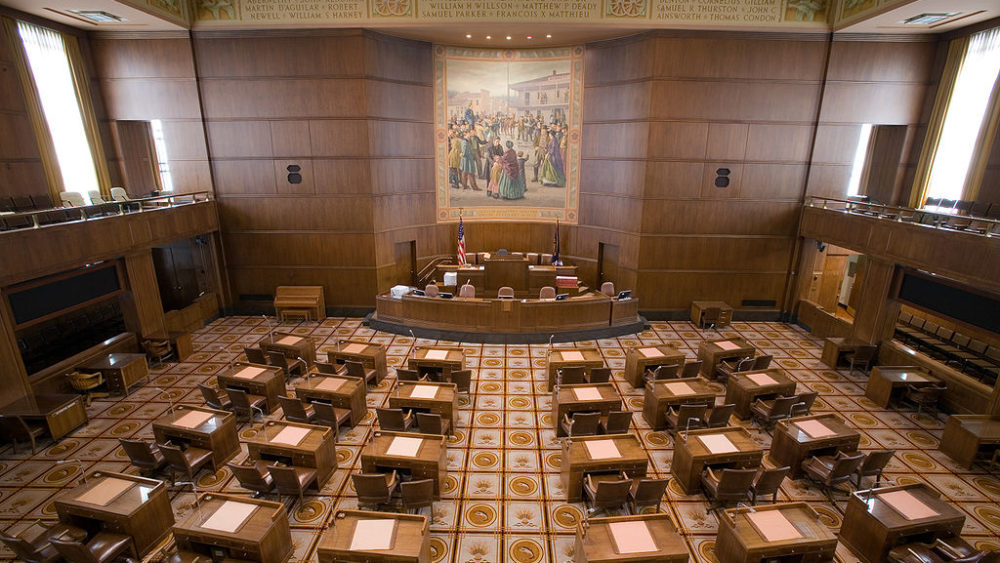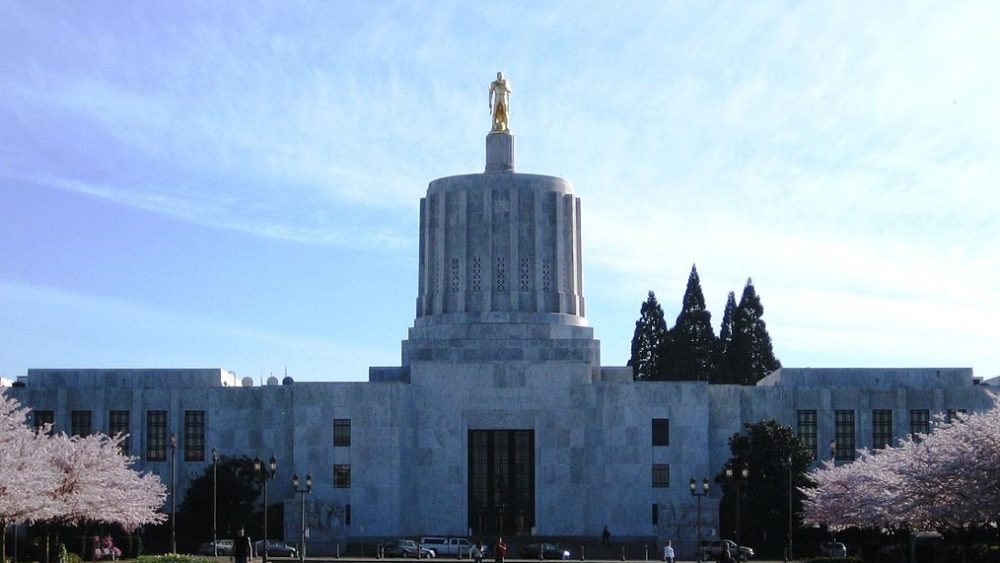May 4, 2020 •
No Limits on Campaign Contributions in Oregon

Oregon Senate Chamber - photo by Cacophony
Oregon political candidates in legislative and statewide races can continue to accept contributions vastly exceeding the caps voters approved in 2006. Secretary of State Bev Clarno announced on Friday she would not allow the 2006 voter approved initiative. The initiative […]
Oregon political candidates in legislative and statewide races can continue to accept contributions vastly exceeding the caps voters approved in 2006.
Secretary of State Bev Clarno announced on Friday she would not allow the 2006 voter approved initiative.
The initiative placed a $1,000 limit on donations to statewide candidates and a $100 limit on contributions to legislative candidates.
Clarno’s office released a statement communicating Measure 47 from 2006 was not made operative by the Oregon Supreme Court decision.
Therefore, there is no change in current state election laws.
Clarno’s decision was based off of a verbal opinion from the Department of Justice.
Also, Multnomah County Circuit Judge Thomas Ryan ruled Portland Mayor Ted Wheeler’s campaign did not need to limit spending.
The ruling came after a suit filed by Wheeler’s main opponent questioning his use of contributions.
Portland mayoral candidate Sarah Iannarone had joined several campaign finance activists in a lawsuit against Wheeler’s campaign.
The lawsuit contends the mayor must repay all the donations he’s received surpassing the $500 campaign finance limit approved by Portland voters in 2018 but never enforced due to legal challenges.
After last week’s Supreme Court ruling, the city auditor’s office will begin enforcing Portland’s campaign finance measure starting today.
However, candidates won’t be retroactively punished for taking large donations.
Portland Attorney Dan Meek said he would ask the state Supreme Court to reconsider its April decision to make it clear Measure 47 should go into effect immediately.
In November, voters will decide on a proposed state constitutional amendment making it clear the state could adopt any limits allowed under the U.S. Constitution.
February 5, 2020 •
Oregon Referendum Process Could Change

Oregon State Capitol Building
Salem attorney Steve Elzinga has proposed changes to the state administrative rules to prevent manipulation of a mechanism allowing citizens to stop new laws passed by legislators. Our Oregon, a union backed political group, is alarmed about the proposed changes […]
Salem attorney Steve Elzinga has proposed changes to the state administrative rules to prevent manipulation of a mechanism allowing citizens to stop new laws passed by legislators.
Our Oregon, a union backed political group, is alarmed about the proposed changes to the state’s election rules.
The group says the rules give special interests excessive influence.
The opposing sides argue they are defending the ability of voters to directly access the state’s political system.
The Office of the Secretary of State held a hearing on the rule changes earlier this week. Secretary of State Bev Clarno could decide on the rule changes as soon as next month.
In Oregon, if citizens want to challenge a new law passed by the Legislature they can put it to a statewide vote by using the state’s referendum process.
Citizens have 90 days after the Legislature adjourns to petition for a referendum, unless a new law is written to take effect right away.
The number of signatures required to trigger a referendum is based on turnout in previous elections
The number of signatures required is currently 74,680.
However, signatures can’t be gathered until the governor signs the legislation into law.
The proposed change would permit collecting signatures for a referendum as soon as the targeted legislation passes both the House and the Senate.
Governors have 30 business days after the Legislature adjourns to sign a bill into law.
The change would prevent governors delaying the signing of a bill to chew up some of the 90 days set aside for petition work.
State and Federal Communications, Inc. provides research and consulting services for government relations professionals on lobbying laws, procurement lobbying laws, political contribution laws in the United States and Canada. Learn more by visiting stateandfed.com.

